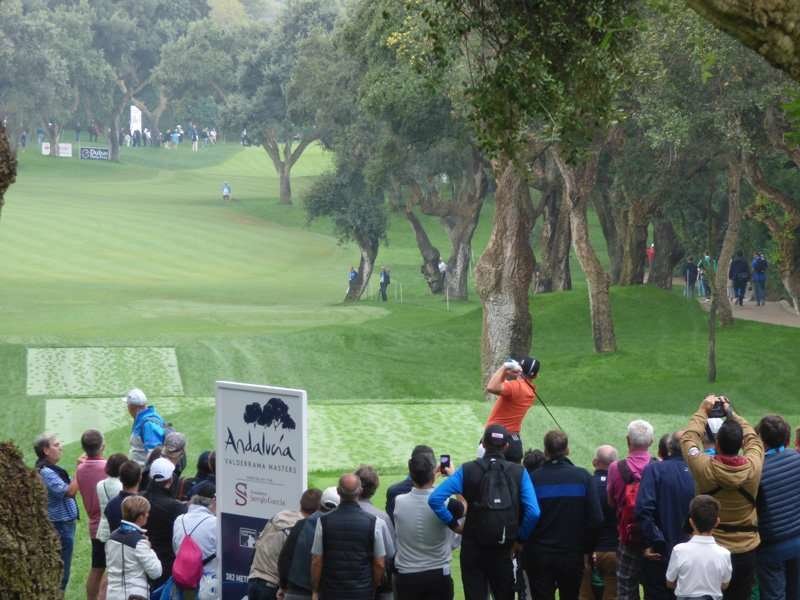'Golf y economía', Carlos Rodríguez Braun

Estamos en plena celebración del Andalucía Valderrama Masters en Sotogrande, por lo que podemos aprovechar esta oportunidad para reflexionar sobre la relación entre el deporte y la economía, en particular en el caso del golf.
Partiendo de la antigüedad más remota, el deporte ha sido analizado desde innumerables perspectivas: políticas, sociales, educativas, sanitarias, morales, psicológicas y hasta estratégicas y militares.
 Carlos Rodríguez Braun
Carlos Rodríguez BraunPero también tiene una dimensión económica, que no solo es apreciable sino que cuenta en nuestro país con un margen de crecimiento. Según Jaume García, catedrático de Economía y Empresa de la Universidad Pompeu Fabra, el peso del deporte en el PIB de nuestro país es del 1,4 %, equivalente a unos 15.000 millones de euros; el porcentaje es bastante inferior al de otros países como Alemania, con el 3,9 %, o Austria, con el 4,1 %.
Dentro de esa relevante realidad económica, el golf tiene un impacto que ha sido estimado en más de 2.000 millones de euros al año. Hay más de 11.000 empleos directos generados por el golf.
El deporte se solapa con otra actividad significativa para la economía de España en general y de Sotogrande en particular. Se trata del turismo, y especialmente el turismo ligado al golf, cuyo gasto anual puede superar los 2.000 millones de euros en España, de los cuales 500 millones quedan aquí, en Andalucía. Según informó Expansión: “España es el segundo país del mundo que más turistas extranjeros recibe cuyo motivo principal para viajar es jugar al golf. Sólo EE UU se encuentra por delante en esta clasificación”.
El turismo deportivo, que atrae a unos diez millones de turistas por año, tiene una característica económica adicional que los golfistas conocen bien: carece de estacionalidad. Es un fenómeno que, junto con la temporalidad del empleo, típica de las actividades estacionales, siempre han lamentado los analistas del turismo en España, que subrayan la importancia de atraer a deportistas y a turistas deportivos todo el año. El golf se ajusta bien a las actividades no estacionales. Y, por cierto, en Sotogrande no cabe plantear la tradicional oposición entre destinos turísticos de sol y playa, por un lado, y destinos golfísticos, por el otro. En Sotogrande, aunque no sea todo el año, cumplimos los dos objetivos.
Golf and the economy
Carlos Rodríguez Braun
We are in the middle of celebrating the Andalucía Valderrama Masters in Sotogrande, therefore we can take this opportunity to reflect on the relationship between sport and the economy, in particular, the case of golf.
Since antiquity, sport has been analysed from endless perspectives: political, social, educational, medical, moral, psychological and even strategic and military.
But, there is also an economic dimension, which is not only significant, but also, in our country it has room for growth. According to Jaume García, a lecturer in Economics and Business at Pompeu Fabra University, the influence of sport on the GDP of our country is 1.4%, equivalent to around 15 billion Euros: the percentage is significantly lower than other counties like Germany, with 3.9%, and Austria, with 4.1%.
Within this important economic reality, golf has an impact that has been estimated to be more than 2 billion Euros a year. There are more than 11,000 direct jobs created by golf.
Sport overlaps with another significant activity for the economy of Spain in general and Sotogrande in particular. We are talking about tourism, and especially tourism linked to golf, whose annual spending can be over 2 billion Euros in Spain, of which 500 million stays here in Andalusia. According to Expansión: “Spain ranks second in the world among countries that receive the most foreign tourists whose main reason for travelling is to play golf. Only the United States is ahead in this ranking”.
Sports tourism, which attracts around ten million tourists a year, has an additional economic characteristic that golfers are well aware of: it lacks a seasonal nature. It is a phenomenon that, along with the temporariness of work, typical of seasonal activities tourist analysts in Spain have always complained about, highlighting the importance of attracting sports people and sports tourists throughout the year. Golf fits in well with non-seasonal activities. And, of course, in Sotogrande there is not the traditional opposition between sun and sea tourist destinations on one hand, and golfing destinations, on the other. In Sotogrande, even if it is not all year, we fulfil the two objectives.
